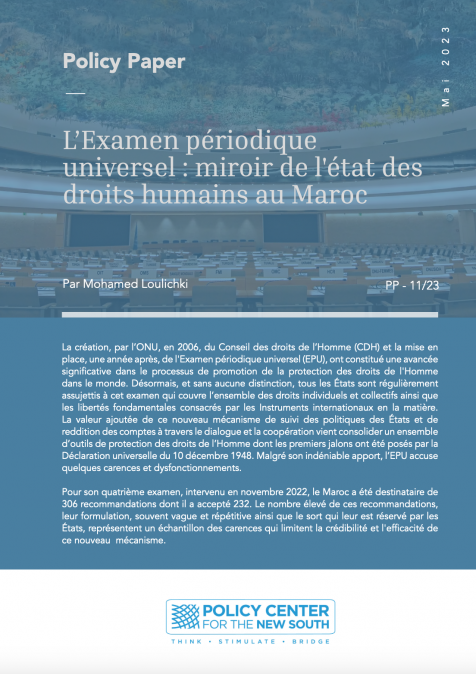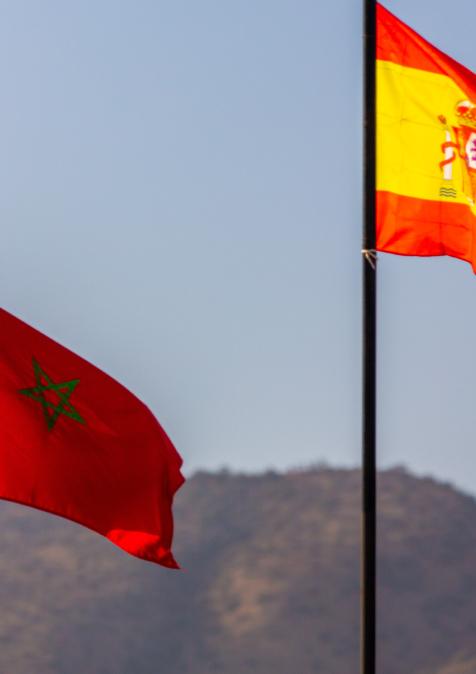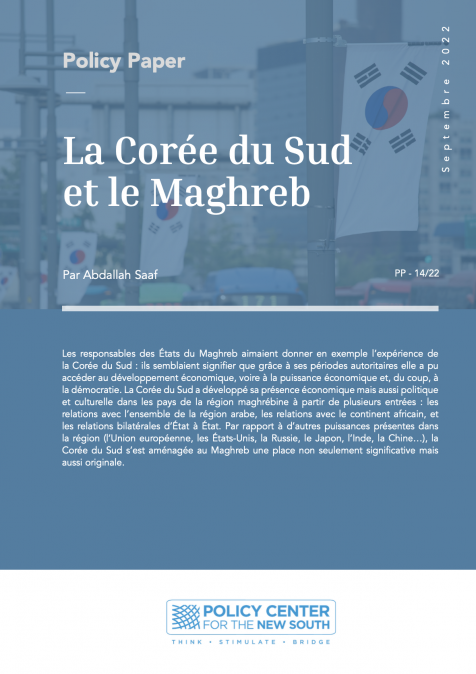Publications /
Opinion
Hisham Aidi chose a diplomatic version for fading freedom, growing populism, mental torture, perversion of truth and imprisonment- turning his Policy Brief "Covid-19 and Digital Repression in Africa" to "democratic retrenchment" and "imperial overreach". No mention of George Orwell's "Science fiction "oeuvre, of which George Parker wrote in "The Atlantic" ( July 2019°): "No novel of the past century has had more influence than George Orwell's "1984". Possibly Aidi did not detect an African nation on the path of Orwell-yet.
The dystopia future the British writer projected was on the bestseller lists in the USA, as soon as President Donald Trump in 2016 added his own version of Orwell's famous newspeak- the language of Oceania, the totalitarian nation. Trump enriched Orwellian Big Brother by inventing his long list of doublespeak like "alternative facts" and "fake news". Mr. Trump sounded like Big Brother when he declared in the last week of July 2018 in a speech to military veterans, “what you are seeing and what you are reading is not what's happening." The Republican did not lose the Presidential election 2020. His victory was stolen, the “Great steal”. No President before him had his wisdom and genius of leadership, a shame that his opponents manipulated millions of votes.
George Parker argued:" The crucial issue was not that Trump might abolish democracy, but that Americans had put him in a position to try. Unfreedom today is voluntary, and it comes from the bottom up." And:" The Ministry of Truce is Facebook, Google and cable news. We have met Big Brother, and he is us."
The" proles", as Orwell named the ignorant, oppressed and apolitical masses of Oceania, were as willing to believe big brother as Trump voters their aggrieved leader. Mass surveillance, brainwashing, repressive regimentation was part of the big brothers' universe. HE was invisible, but omnipresent, controlling brain and feelings, and any deviation from his philosophy of total control and obedience was punished as a thought crime."
“BIG BROTHER IS WATCHING YOU" was the message and a step away from room 101, where torture and starving rats were waiting for the unfortunate. Emotions were considered a crime, and when the state declared 2+2=5, that was the truth, which even Albert Einstein could not correct. The thought police made sure that it would never be questioned whenever big brother would spread his wisdom. Because that certainly "double plus ungood", meaning in old language “superlatively bad." In Orwell's darkness, there was no freedom for the masses, no feelings, criticism, even memory was erased, history rewrote, the memory hole.
There was a Ministry of Truth, and those who falsify the truth erase the past. George Orwell's "1984", published in 1949, was his ninth and last book before he contracted tuberculosis and died a slow death. In his younger days, he espoused socialist, even communist, theories and insisted that his novel was not attacking any particular government. Still, a satire of totalitarian tendencies in Western societies and intellectuals, the moral of his work was, Don't let it happen. It depends on you."
In his Policy Brief, Hisham Aidi documented Donald Trump is not the only leader drawn to populist authoritarianism, capitalizing on the disillusionment with democratic systems for a personal political end. The Covid-19 pandemic “has been exploited by African regimes to crack down on opposition movements, promote disinformation, and survey citizenry. Lockdowns in Africa have been violently enforced to ban political gatherings and electoral campaigning.”
The military staged another coup in Sudan, removing the transitional civilian Prime minister Abdalla Hamdok from power. According to the transition calendar, elections was scheduled to be held in 2023. This plunged the country into another crisis following the overthrow of the former President, Omar al-Bashir, in 2019.
Digital Authoritarianism
In his paper Hisham Aidi traces how democratic backsliding in Africa has accelerated since the pandemic began. In June 2020, then Prime minister Elias Fakhfakh stated that the Tunisian government was tracking people's movements anonymously through their SIM cards to monitor compliance with Covid-19 quarantine restrictions. The Ministry of Health subsequently confirmed the adoption of contact-tracing phone apps that collect people's phone numbers and GPS locations-big brother moved into Africa. On July 25, the President of Tunisia, Kais Saled, dismissed the prime minister, froze parliament, and declared that he would rule by decree. He put in place a thirty-day curfew and invoked Article 80 of the Tunisian constitution, granting him the power to address "imminent danger to statehood, national security, and the country's independence."
"It's ironic that this political imbroglio, involving digital surveillance, is unfolding in Tunisia, which ten years ago, was the birthplace of the Arab Spring and the first Twitter Revolution, held up as evidence that the internet was a "liberation dictatorship" which could bring down dictatorships, Hisham Aidi notes. A decade later, "cyber optimism has given way to cyber pessimism, as it has become evident that digital technologies are allowing for new styles of authoritarianism." It seems ironic that civilians, not generals, are staging coups these days more often than not.
In the Arab world, suggested Marc Lynch in his "Digital Activism and Authoritarian Adaption in the Middle East" (August 2021, The Project on Middle East Political Science, Pomeps.org/digital-activ), the United Arab Emirates seems to be closely replicating the Chinese model, with comprehensive surveillance "becoming "a societal norm, while highly sophisticated artificial intelligence assesses massive quantities of data, to identify threats, trends and opportunities for state action." In contrast to China, notes Hisham Aidi, Russia is exporting a different type of digital repression, selling technologies that focus primarily on disinformation campaigns that can affect election results."
Orwell's Big Brother is moving from literature into real life. In many countries, Orwell's dystopia is realized via torture concentration camps disguised as re-education camps. They are dismantling democracy in the name of freedom, denying the truth by claiming they are fake news. Increasingly, "it is elected leaders who are dismantling checks and balances, removing limits on executive power, curtailing civilian liberties and undermining the integrity of the electoral system." (Stephan Haggard and Robert Kaufman, "Backsliding: Democratic Regress in the Contemporary World." Cambridge University Press Online, January 19, 2021).
Strong, decisive and anti-system
In 2020, Freedom House reported that the global decline in democratic governance and respect for human rights-which started in 2006-accelerated in 2019.
The report highlighted the anti-democratic turn in West Africa before the COVID-19 pandemic began, noting that this region was where five cases of the world's democratic decline had happened. Benin and Senegal went from "free" to "partly free", so that today Ghana and Cabo Verde are the only "free states" in West Africa. (Freedom House, "West Africa's Democratic Progress is Slipping Away. Even as Region's Significance Grows"). This global decline, writes Hisham Aidi in his Policy Brief," accelerated during 2020 so that nowadays, only a fifth of the world's globe lives in fully-free countries."
The Freedom House report downgraded the freedom scores of 73 countries, authoritarian regimes such as China, Belarus and Venezuela, and established democracies such as India and the United States because of the rise of liberal populist leaders. This global pattern, Aidi notes, "has multiple causes, including economic inequality, American imperial overreach, and increased migration, all of which have led to disillusionment with democratic systems, and have inspired a populist demand for Trump-style leaders who appear to be strong, decisive, and anti-system."
In the end, most US voters rejected the unhinged style of Trump, some possibly in fear that he could turn out to be the real big brother. As soon as the erratic Trump was elected, "1984" was reborn. George Orwell's sinister novel climbed to the top of the Amazon bestseller list, its readers unsettled about the moral compass of their wicked President, suspected, today more than ever, to be tempted to rule America alone, no senators, no press, no supreme court. Just Donald Trump. The Napoleon of America. Or big brother? George Orwell concluded:" To see what is in front of one's nose needs a constant struggle."
The opinions expressed in this article belong to the author.










